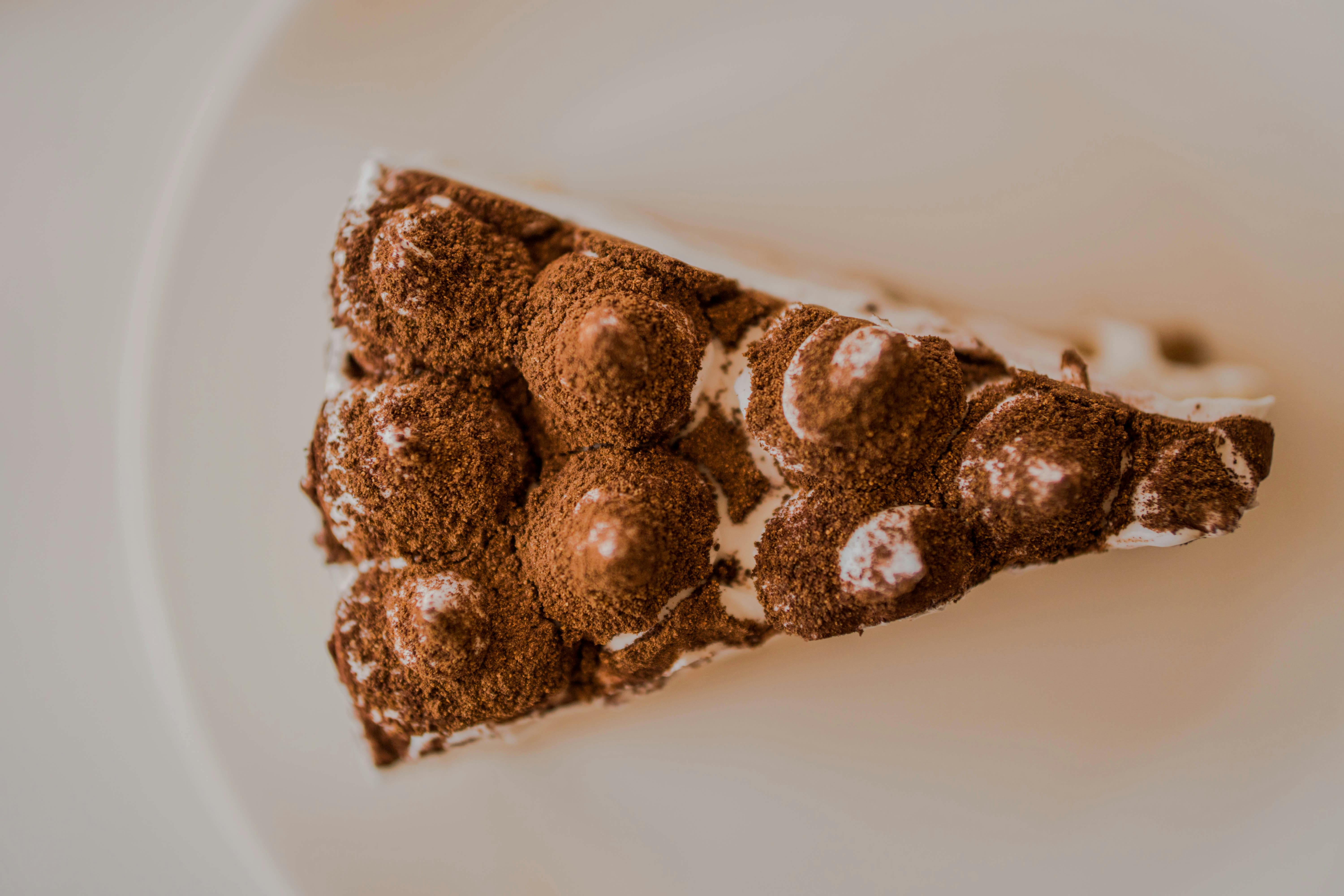In this captivating article, we invite you to explore the rich cultural significance of cowrie necklaces in African culture. These timeless pieces not only exude elegance, but also hold deep meaning and tradition. At Upsera, we celebrate the beauty and versatility of cowrie shell necklaces, perfect for special occasions and meaningful gift-giving. Immerse yourself in the world of cowrie necklaces as we take a deeper dive into their significance within African culture. Discover the captivating stories and symbolism behind these stunning accessories at Upsera.com!

The Significance of Cowrie Shells in African Culture
Cowrie shells hold a significant place in African culture, with their rich historical background and deep symbolism. Used for various purposes ranging from fashion and adornment to spiritual and religious practices, cowrie shells have become an integral part of African traditions. In this article, we will delve into the cultural importance of cowrie necklaces, explore their traditional craftsmanship, examine their evolution in modern African fashion, discuss the economic and environmental implications of their production, address concerns of cultural appropriation, and highlight their role as symbols of African identity and pride.
Historical Background
Cowrie shells have a long and fascinating history in Africa, dating back thousands of years. These shells were originally used as a form of currency in many regions, serving as a means of trade and barter. Known for their durability and natural beauty, cowrie shells quickly gained popularity and became a coveted item. Their value extended beyond the realm of trade, as cowrie shells were also used in various cultural practices, rituals, and ceremonies.
Symbolism and Meanings
Cowrie shells are revered for their symbolic meanings in African cultures. They are often associated with femininity, fertility, and wealth. The shape of the shell is said to resemble the female reproductive system, making cowrie shells a powerful symbol of fertility and motherhood. Additionally, their natural glossy appearance and rarity contributed to their association with prosperity and wealth. In some African cultures, cowrie shells are believed to bring good luck and protect against evil spirits.
Spiritual and Religious Significance
In many African spiritual and religious practices, cowrie shells are considered sacred objects with strong spiritual significance. These shells are believed to possess the power to connect individuals with their ancestors and the divine realm. They are often used in divination rituals to seek guidance and communicate with the spirit world. Cowrie shells provide a direct link to African spirituality and are often used as offerings to ancestral spirits or deities.
The Cultural Importance of Cowrie Necklaces
Fashion and Adornment
Beyond their spiritual and symbolic significance, cowrie necklaces have played a vital role in African fashion and adornment. These necklaces are intricately crafted using various materials and techniques, resulting in exquisite pieces of jewelry. Cowrie necklaces are known for their versatility and ability to enhance any outfit. They have become a staple accessory for both men and women, adding a touch of African heritage and elegance to fashion ensembles.
Social and Economic Significance
Cowrie necklaces hold social and economic importance in African societies. Wearing these necklaces signifies social status, cultural belonging, and personal expression. In some regions, cowrie necklaces are passed down through generations, representing family heritage and ancestral ties. Moreover, the production and trade of cowrie necklaces support local artisans and contribute to the economic growth of communities. They provide livelihood opportunities and empower individuals to showcase their artistic skills.
Traditional Rituals and Ceremonies
Cowrie necklaces are prominently featured in traditional African rituals and ceremonies. They are worn during rites of passage, such as weddings, coming-of-age ceremonies, and initiation rituals. Cowrie necklaces are believed to bring blessings, protection, and prosperity to the wearer during these significant life events. They also serve as a visual representation of cultural traditions and values, reinforcing the bond between past and present generations.

The Traditional Craftsmanship of Cowrie Necklaces
Materials and Techniques
The craftsmanship of cowrie necklaces involves the use of various materials and intricate techniques. Cowrie shells, which form the focal point of these necklaces, are often sourced from the shores of Africa, ensuring their authenticity and cultural significance. The shells are carefully drilled, polished, and threaded onto strings or cords, creating a stunning and durable piece of jewelry. In addition to cowrie shells, artisans incorporate other materials such as beads, leather, metals, and natural fibers to add depth and uniqueness to their designs.
Artistic Designs and Patterns
African artisans exhibit incredible creativity and artistry in their designs for cowrie necklaces. Each necklace is a work of art, with carefully arranged cowrie shells and complementary materials forming patterns, motifs, and symbols. These designs often reflect regional influences, cultural traditions, and personal aesthetics. Some necklaces feature intricate beadwork, intricate knotting techniques, or geometric patterns, adding further depth and intricacy to the overall design.
Regional Variations
Cowrie necklaces exhibit regional variations across Africa, showcasing the diverse cultural heritage and artistic traditions of different communities. Each region has its distinctive style, materials preference, and design motifs. For instance, in West Africa, Yoruba cowrie necklaces feature elaborate beadwork and intricately beaded patterns complementing the cowrie shells. On the other hand, Maasai cowrie necklaces from East Africa are characterized by vibrant colors, bold beading, and a strong emphasis on tribal identity.
The Evolution of Cowrie Necklaces in Modern African Fashion
Influence on Contemporary Designers
Cowrie necklaces have gained international recognition and influenced contemporary African fashion designers. African designers have incorporated cowrie necklaces into their collections, reimagining traditional elements with a modern twist. They have showcased the versatility of cowrie necklaces by pairing them with contemporary clothing, proving that these necklaces can be worn in both traditional and contemporary settings. This fusion of traditional craftsmanship and modern design has contributed to the global appeal of cowrie necklaces.
Celebrity Endorsements and Popularity
The popularity of cowrie necklaces has been further augmented by celebrity endorsements and appearances in mainstream media. Prominent figures, including musicians, actors, and fashion icons, have donned cowrie necklaces, showcasing their African heritage and embracing the cultural significance of these accessories. This exposure has led to increased interest and demand for cowrie necklaces in the global fashion market, further cementing their status as a symbol of African identity and pride.
Fashion Trends and Globalization
Cowrie necklaces have become a fashion trend in recent years, transcending cultural boundaries and gaining popularity worldwide. These necklaces are now widely embraced by individuals seeking to infuse their style with a touch of African culture and authenticity. The globalization of fashion has enabled the dissemination of cowrie necklaces to a global audience, fostering cross-cultural appreciation and exchange. This increased demand has had a positive impact on African artisans, creating economic opportunities and encouraging the preservation of traditional craftsmanship.

The Economic and Environmental Implications of Cowrie Necklace Production
Sustainable Sourcing of Cowrie Shells
The production of cowrie necklaces raises important considerations regarding the sustainable sourcing of cowrie shells. It is crucial to ensure that the shells used in necklace production are obtained responsibly, without causing harm to the environment or depleting natural resources. Organizations and artisans are increasingly focusing on ethical sourcing practices, engaging in fair trade partnerships, and supporting initiatives promoting sustainable harvesting methods to protect the fragile marine ecosystems where cowrie shells are found.
Impact on Local Economies
The production and trade of cowrie necklaces have a significant impact on local economies in Africa. The demand for these accessories provides income opportunities for artisans, including women who often play a central role in necklace production. By supporting local craftsmen and women, the production of cowrie necklaces helps to stimulate economic growth, alleviate poverty, and create sustainable livelihoods within communities. It allows artisans to preserve their cultural heritage and traditional skills while contributing to the overall development of their societies.
Conservation Efforts and Alternatives
Recognizing the ecological impact of cowrie shell harvesting, conservation efforts are underway to protect the natural habitats of these shells. Some organizations are exploring alternative materials that mimic the appearance of cowrie shells, reducing the need for shell extraction. Sustainable materials like recycled glass beads, ceramic beads, or synthetic replicas are being utilized in necklace production to mitigate environmental concerns. These initiatives aim to strike a balance between cultural preservation and responsible environmental stewardship.
The Cultural Appropriation of Cowrie Necklaces
Ethical Concerns and Cultural Sensitivity
The widespread popularity of cowrie necklaces has raised concerns regarding cultural appropriation. It is important to approach the wearing and production of these necklaces with cultural sensitivity and respect. Understanding the symbolic significance and historical context of cowrie necklaces is essential to avoid misappropriation and protect the integrity of African traditions. Individuals and designers should engage in meaningful dialogue with African communities, supporting fair trade practices, and acknowledging the origins of these cultural artifacts.
Misrepresentation and Stereotyping
The misrepresentation and stereotyping of cowrie necklaces can perpetuate harmful narratives and perpetuate cultural stereotypes. It is crucial to recognize that cowrie necklaces are not mere fashion accessories but hold deep spiritual, historical, and cultural meaning for African communities. Misappropriation or commodification of these cultural symbols can lead to the erasure of their true significance and the exploitation of African heritage. To promote cultural understanding and respect, it is important to uplift and amplify authentic African voices and perspectives in the fashion industry.
Promotion of Authentic African Crafts
To combat cultural appropriation, individuals and organizations should prioritize the promotion of authentic African crafts. By supporting local artisans and brands that adhere to fair trade practices, consumers can ensure that the production of cowrie necklaces directly benefits African communities. This support fosters cultural appreciation, preserves traditional craftsmanship, and provides a platform for African artists to showcase their talent and creativity. Education and awareness play a vital role in advocating for the ethical consumption and appreciation of African cultural heritage.
Cowrie Necklaces as Symbols of African Identity and Pride
Empowerment and Self-Expression
Cowrie necklaces serve as powerful symbols of African identity and self-expression. By wearing these necklaces, individuals can proudly embrace their African heritage and celebrate their cultural roots. Cowrie necklaces empower individuals to express their unique identity and showcase their connection to African traditions. As a visual representation of cultural pride, these necklaces foster a sense of belonging and instill confidence in those who wear them.
Reviving Traditional Practices
The popularity and appreciation of cowrie necklaces have played a significant role in reviving traditional practices. As the demand for these necklaces grows, artisans are encouraged to preserve and pass on their traditional skills to future generations. The revival of traditional practices not only safeguards cultural heritage but also ensures the transmission of ancestral knowledge and craftsmanship. Cowrie necklaces serve as catalysts for cultural revival, inspiring African communities to revisit and cherish their traditional practices.
Preservation of African Heritage
Cowrie necklaces form a crucial part of African heritage, and their continued use and appreciation contribute to their preservation. By embracing these necklaces as symbols of African culture, individuals actively participate in keeping African heritage alive. Cowrie necklaces act as tangible links to the past, enabling future generations to connect with and understand the rich history and traditions that shape their identities. Through the preservation of African heritage, we ensure that the legacy of cowrie necklaces continues to thrive.
Cowrie Necklaces: Beyond Fashion Accessories
Healing and Protection
In addition to their aesthetic appeal, cowrie necklaces are believed to possess healing and protective properties. In African spirituality, these necklaces are said to ward off negative energies, offer spiritual protection, and promote overall well-being. They are often worn during healing rituals and ceremonies to invoke positive energy and initiate a connection with ancestral spirits. Cowrie necklaces hold a sacred space in African beliefs, serving as a source of comfort, guidance, and spiritual healing.
Amulets and Talismans
Cowrie necklaces have long been regarded as powerful amulets and talismans in African cultures. It is believed that these necklaces carry the essence of the sea and possess the energy of the divine. Cowrie shells are thought to possess mystical properties that can attract good fortune, prosperity, and positive energy into the lives of those who wear them. They are regarded as objects of spiritual protection, providing a constant reminder of the wearer's connection to the spiritual realm.
Enhancing Spiritual Connection
Cowrie necklaces are integral to enhancing the spiritual connection between individuals and their ancestral spirits. These necklaces are often worn during religious ceremonies, initiations, and rituals as a means of establishing a direct link with the divine realm. The cowrie shells' symbolic significance and association with femininity, fertility, and wealth make them potent instruments for connecting with ancestral spirits and seeking their guidance. Cowrie necklaces facilitate a deeper spiritual connection, fostering a sense of belonging and spiritual growth.
The Influence of Cowrie Necklaces on Other Cultures
Global Adoption and Adaptation
The allure of cowrie necklaces has transcended cultural boundaries and led to their adoption and adaptation by other cultures. Beyond Africa, cowrie necklaces have gained popularity in various parts of the world. The versatility and timeless appeal of these necklaces make them appealing to individuals seeking to incorporate elements of African culture into their own style. The global adoption and adaptation of cowrie necklaces highlight their universal appeal and their ability to foster cross-cultural exchange.
Cross-Cultural Exchange
The popularity of cowrie necklaces has facilitated cross-cultural exchange and collaboration between African and non-African designers, artists, and fashion enthusiasts. The fusion of African aesthetics with contemporary fashion trends has resulted in exciting collaborations that celebrate the beauty and diversity of different cultures. Cowrie necklaces act as a bridge, enabling dialogue and understanding between cultures, and encouraging the appreciation of diverse artistic expressions.
Symbolic Meanings in Different Contexts
While cowrie necklaces hold specific symbolic meanings in African cultures, their interpretations may vary when adopted by other cultures. Cowrie necklaces may acquire new meanings or be incorporated into existing cultural practices in different contexts. The infusion of diverse perspectives and cultural experiences allows for reinterpretation and exploration of the symbolic potential of cowrie necklaces. It is important to recognize and respect the evolving interpretations of these necklaces in non-African cultural contexts.
Where to Buy Authentic Cowrie Necklaces
Trusted African Artisans and Brands
To support authentic African craftsmanship and ensure the purchase of genuine cowrie necklaces, it is recommended to seek out trusted African artisans and brands. By purchasing directly from artisans or reputable African-owned businesses, buyers can be confident in the authenticity and quality of the necklaces. These artisans and brands often have long-established connections with local communities, ensuring that the production of cowrie necklaces directly benefits African craftsmen and women.
Online Marketplaces and Retailers
Online marketplaces and retailers offer a convenient platform to explore and purchase authentic cowrie necklaces. Various websites specialize in African crafts and provide a curated selection of cowrie necklaces sourced directly from African artisans. When purchasing from online platforms, it is essential to research the seller's credibility and adherence to fair trade practices. Reading customer reviews and ensuring transparent sourcing practices can help in making informed and ethical buying decisions.
Fair Trade Organizations
Fair trade organizations play a crucial role in promoting ethical practices in the production and trade of cowrie necklaces. These organizations work directly with artisans, ensuring fair wages, safe working conditions, and sustainable sourcing practices. By supporting fair trade organizations, buyers can contribute to the economic empowerment of African artisans while acquiring authentic cowrie necklaces. Fair trade certifications provide assurance that the purchase supports social and environmental responsibility.
In conclusion, cowrie necklaces hold immense cultural significance in African traditions. They symbolize femininity, wealth, and spirituality, while also playing roles in fashion, adornment, traditional rituals, and ceremonies. The craftsmanship of cowrie necklaces showcases regional variations, artistic designs, and the use of diverse materials and techniques. These necklaces have evolved over time and gained popularity in modern African fashion, influencing designers and becoming fashion trends globally. However, their production raises economic and environmental implications, necessitating sustainable sourcing and conservation efforts. Additionally, concerns of cultural appropriation highlight the importance of cultural sensitivity and supporting authentic African crafts. Cowrie necklaces serve as symbols of African identity and pride, reviving traditional practices and preserving African heritage. Beyond fashion accessories, they are believed to possess spiritual powers, amulets, and talismans enhancing self-expression and connecting wearers with their ancestral spirits. The influence of cowrie necklaces extends beyond Africa, fostering cross-cultural exchange and inspiring diverse interpretations. To buy authentic cowrie necklaces, it is advisable to support trusted African artisans, explore online platforms, or choose fair trade organizations. By appreciating and respecting the cultural significance of cowrie necklaces, we honor African heritage and contribute to its preservation.





Leave a comment